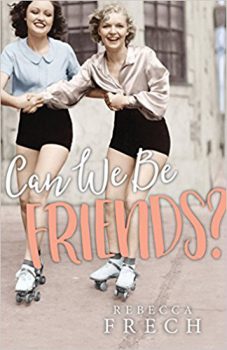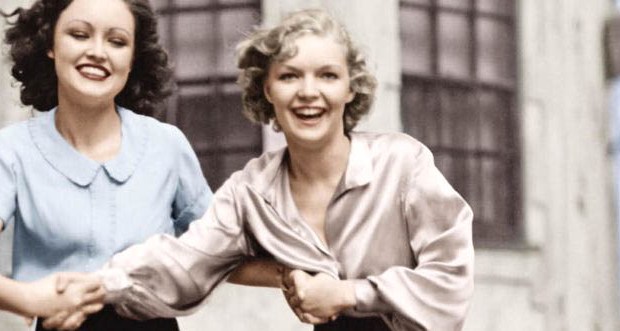Perhaps it says something about the culture, and the divisive, almost tribal, times we live in that, although it will not be published until May of this year, Rebecca Frech’s new book Can We Be Friends? is already (on preorder) rated the “#1 New Release” on friendship at Amazon.
Are we in a crisis of loneliness? Past generations were more socially engaged than we seem to be. Our parents were members of bowling leagues or the Knights of Columbus; they invited friends over to play cards. Those commonplace social gatherings are fading, but what seems to be replacing them are tweets and texts and virtual engagements with people we have never met on Facebook.
Frech contends that we are in an “epidemic of loneliness,” and she may be on to something. Google “are people lonely?” and watch the hit count rise amid reports of generational loneliness, the growing sense of isolation people feel as they keep their gadgets close at hand, and humans at a distance, where it’s safer — no entanglements, no bickering, no responsibilities or accountability — but also empty.
Here Frech answers a few questions about Can We Be Friends? — which may yet become the question of the year.

What inspired the book?
For the last few years, it’s seemed like everywhere I go people are complaining about how lonely they are. I started researching the psychological, sociological, and anthropological reasons why loneliness seems to be such an epidemic, and found a lot of uniquely modern reasons. That’s where it all started, obsessive nerd researching.
If you could give this book another title what would it be?
You are not alone: Love, loss, and the search for friends
What person in this book do you most identify with personally, or what insight of theirs most personally resonated with you?
My grandmother, always my grandmother. She’s a wonder of the world — 96 years old, sharp as a tack, and mean as a snake. She’s one of the wisest people I’ve ever known. I told her I was writing about friendship and loneliness, and she quipped, “Do you know why all of you young women are so lonely? Air conditioning, television, and women drivers.”
She was right, of course, but you’ll have to read the book to find out why.
Did writing this book teach you anything?
More than I’d like to admit. The more I wrote about what makes for a good and successful friendship, the more I saw the places in my life where I had been a horrible friend. I sent out a lot of apologies.
It’s an obvious question, but can we be friends? What solutions can you see on the horizon? How do we break out of the loneliness?
We can be, and I think we’re rediscovering that. I’m watching people wake up to the emotional emptiness of the way we live in our modern world, and they’re beginning to push back against it. People, especially millennials, seem to be eschewing higher paying jobs in favor of careers that offer them the ability to have a personal life. I’ve seen it with my own children who are flat-out rejecting the insane work weeks they’ve seen their father and their friends’ parents working. We’re looking again for true and authentic connections, and admitting the ache of loneliness that is epidemic in our society.
Human beings were created to live in community with other people, to be part of a tribe, and I’m seeing people finally waking up to that fact and being intentional as they reach back to their families of origin and as they go out in search of a family by choice.
If there is one person you’d like to reach with this book, who would that be?
The woman sitting at home aching from loneliness, and waiting for her people to find her. I’ve tried to give her the hope, inspiration, and tools to go out and find them for herself.
The question we ask everyone: What is the ideal beverage to have in hand while reading your book?
A foofy coffee with all the trimmings or maybe a mimosa. Something light and fun that makes you smile when you curl up on the couch in your jammies to read.

